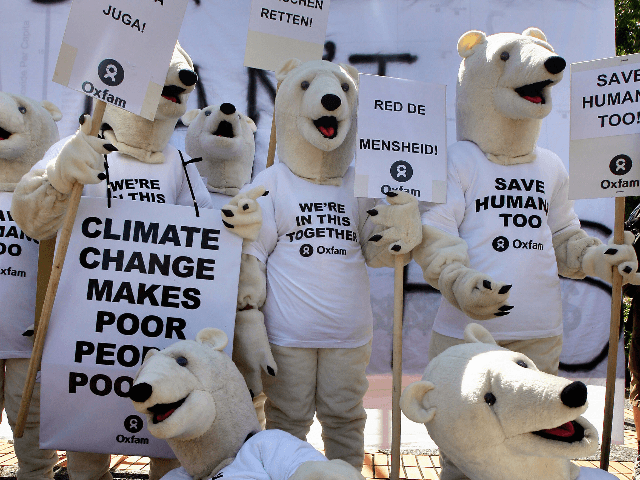A joint editorial by the New England Journal of Medicine and other medical academics around the globe seeks to advance the “climate change” agenda, and it goes beyond reducing emissions to calling for transforming “societies and economies.”
The Orwellian editorial, which was co-written by the British Medical Journal and The Lancet, seeks to put pressure on world leaders ahead of a meeting of the United Nations General Assembly that begins on Sept. 14, as well as those who will be gathering in November at a global climate treaty conference in Glasgow, Scotland.
The editorial reads, in part:
Equity must be at the center of the global response. Contributing a fair share to the global effort means that reduction commitments must account for the cumulative, historical contribution each country has made to emissions, as well as its current emissions and capacity to respond. Wealthier countries will have to cut emissions more quickly, making reductions by 2030 beyond those currently proposed and reaching net-zero emissions before 2050. Similar targets and emergency action are needed for biodiversity loss and the wider destruction of the natural world.
To achieve these targets, governments must make fundamental changes to how our societies and economies are organized and how we live. The current strategy of encouraging markets to swap dirty for cleaner technologies is not enough. Governments must intervene to support the redesign of transport systems, cities, production and distribution of food, markets for financial investments, health systems, and much more. Global coordination is needed to ensure that the rush for cleaner technologies does not come at the cost of more environmental destruction and human exploitation.
Many governments met the threat of the Covid-19 pandemic with unprecedented funding. The environmental crisis demands a similar emergency response. Huge investment will be needed, beyond what is being considered or delivered anywhere in the world. But such investments will produce huge positive health and economic outcomes. These include high-quality jobs, reduced air pollution, increased physical activity, and improved housing and diet. Better air quality alone would realize health benefits that easily offset the global costs of emissions reductions.
The Wall Street Journal reported a fact included in their coverage of the editorial that seems to reveal how little the Earth has warmed:
Greenhouse-gas emissions from human activity have raised global temperatures by 1.1 degrees C since the Industrial Revolution began in the mid-19th century, according to scientific studies.
The effort was organized by the U.K. Health Alliance on Climate Change, a coalition of 21 health organizations including the British Medical Association, the Royal Society of Medicine and the Royal College of Nursing.
Dr. Eric J. Rubin, editor in chief of the New England Journal of Medicine, said about the editorial: “It is an unusual happening and it is driven by unusual circumstances. It is evident that climate change is a problem. What is less evident to people is that it is a public-health problem, not just a physical catastrophe.”
“Health professionals have been on the front-line of the Covid-19 crisis,“ Dr. Fiona Godlee, editor in chief of the British Medical Journal, said in the Journal report. “And they are united in warning that going above 1.5 C and allowing the continued destruction of nature will bring the next, far deadlier crisis.”
“The greatest threat to global public health is the continued failure of world leaders to keep the global temperature rise below 1.5° C and to restore nature,” the editorial concluded. “Urgent, society-wide changes must be made and will lead to a fairer and healthier world. We, as editors of health journals, call for governments and other leaders to act, marking 2021 as the year that the world finally changes course.”
Follow Penny Starr on Twitter or send news tips to pstarr@breitbart.com.

COMMENTS
Please let us know if you're having issues with commenting.